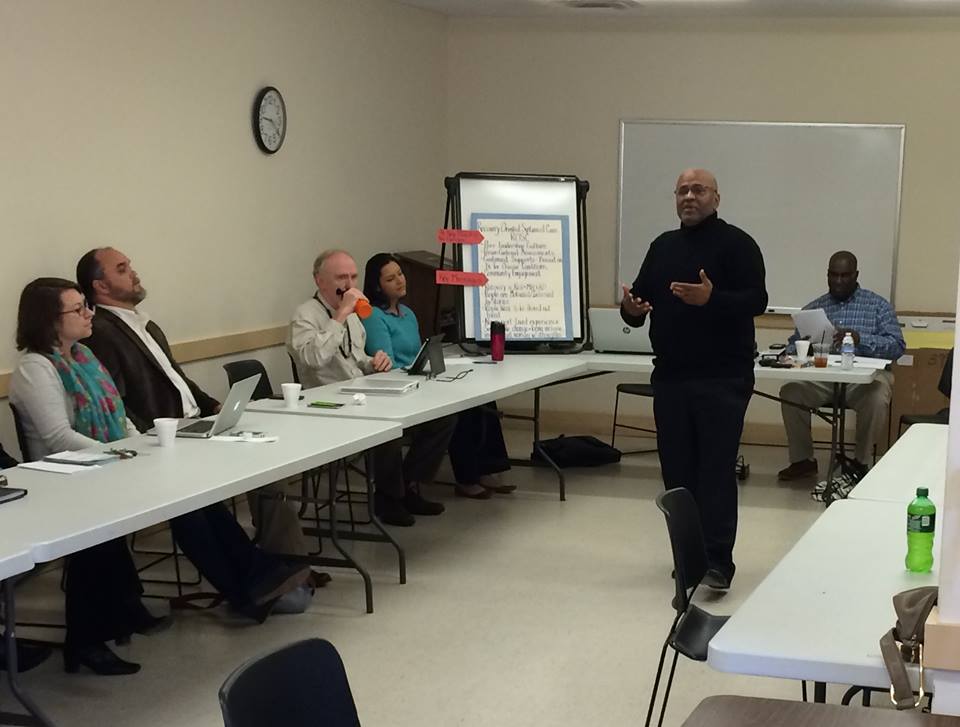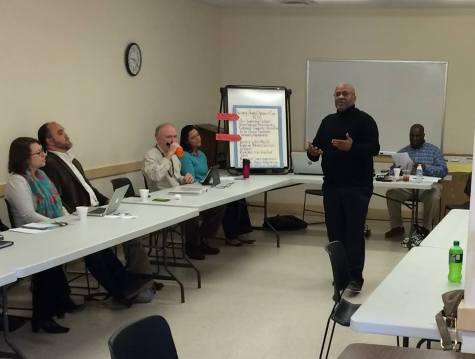Tony Sanchez has been drug-free and alcohol-free for more than a decade.
But until age 35 he smoked marijuana, free-based crack cocaine and drank alcohol on more than a regular basis. His habits and lifestyle contributed to an armed robbery conviction that landed him in prison for three years, as well as multiple parole violations that repeatedly put him back behind bars.
Today, it has been more than 13 years since he stood up among a group of strangers and introduced himself as an addict.
Sanchez credits his recovery both to the 12-step program of Narcotics Anonymous (NA) — a well-known group similar to Alcoholics Anonymous (AA) — and to a lesser-known method that relies on motivational interviewing. He encountered this alternative in jail when a social worker introduced him to it.
Motivational interviewing is a way of asking people questions so they come up with their own conclusions about themselves. They are not told what to call themselves (e.g., addict, alcoholic) or even whether they need help. They learn to assess, in their own terms, what changes they’d like to make in their lives.
The motivational technique resonated with Sanchez, who says it empowers people to find the power to change within themselves.
Now as the project manager at the Georgia Council on Substance Abuse and the co-founder and president of PLR Athens, a peer-led recovery center, Sanchez has a mission to help others see that they can recover from overuse of alcohol or drugs.
Trying whatever works
There is no one-size-fits-all approach to beating addiction. Fortunately, multiple pathways to recovery are available here in Georgia, and coordination among them is improving. The Georgia Council on Substance Abuse, the Georgia Mental Health Consumer Network, and the Georgia Parent Support Network have teamed up to showcase the range of recovery resources available.
[youtube]http://youtu.be/xq957VTWqzE?list=UUCffhputOA8g_7qMiIUURRQ[/youtube]In 2015, these groups will host nine recovery symposia across the state — in Athens, Augusta, Savannah, Thomasville, Demorest, Dublin, Columbus, and Atlanta. Dates, times, and locations will be posted on the Georgia Council on Substance Abuse website as they are finalized.
People in Athens have a variety of places to go for help. There are roughly 18 AA meetings and four NA meetings in Athens every day. Attendance is free, although donations are accepted.
In these meetings, people from all walks of life introduce themselves to the group as alcoholics or addicts, without having to give their full names. While many people respond well to the 12-step method, others are not comfortable with the spiritual element of the program (though it is nonsectarian). And some are uneasy with labeling themselves.
Larry Walton, a psychotherapist and licensed clinical social worker in Athens, says some people may benefit from choosing to refer to themselves as addicts, but it’s not a label that society should place on them.
Walton is co-founder of Recovery Café in Athens. This counseling and treatment center encourages people to move at their own pace toward recovery, which may or may not include a 12-step program.
Walton and colleagues serve as a sounding board for individual clients, using motivational interviewing to help people find their own steps to freedom from drugs and/or alcohol.
The law gives a nudge
Sanchez and his partners at PLR Athens also believe there are many ways to overcome addiction. The name PLR stands for “peer-led recovery,” and it’s a free drop-in center, open Mondays and Wednesdays from 1 to 2 p.m. and Saturdays from 9 to 10 a.m. There are no doctors, clinicians, or therapists in the organization, only people who have been through recovery and who can help others find their way.
“Words are extremely powerful,” says Sanchez, “and one of the biggest barriers to people getting treatment is stigma.”
Sanchez’s long-term recovery began while he was incarcerated, when he worried about transitioning back into civil society. How would he stay sober?
It’s a common problem. The Georgia Department of Corrections says that up to 80 percent of offenders have substance abuse issues.
While Sanchez found his turning point in jail, not everyone reaches that point voluntarily. The majority of Walton’s clients come to Recovery Cafe because a judge has ordered them to get treatment for drug or alcohol problems. “The court system doesn’t necessarily emphasize personal choice,” Walton says.
It is a mistake to think that addiction is confined to certain socioeconomic levels.
“Addiction doesn’t have any boundaries, skin color, it doesn’t care where you’re from. When it’s your turn, it’s your turn,” says Sanchez.
Public and private agencies hope that their 2015 symposia will help coordinate community care, reduce the stigma associated with addiction so that more people will seek care, and reduce the number of people incarcerated for crimes related to drugs and alcohol.
Sanchez works tirelessly to raise awareness about people making their way toward recovery.
“We’re really quick to televise the travesties of addiction, but nobody wants to talk about the successes. That’s why I speak so loudly about it. We need to know that recovery is real.”
Ansley Stewart is pursuing her master’s degree in journalism at the University of Georgia. She is a freelance writer, musician, and also works full time at UGA.



